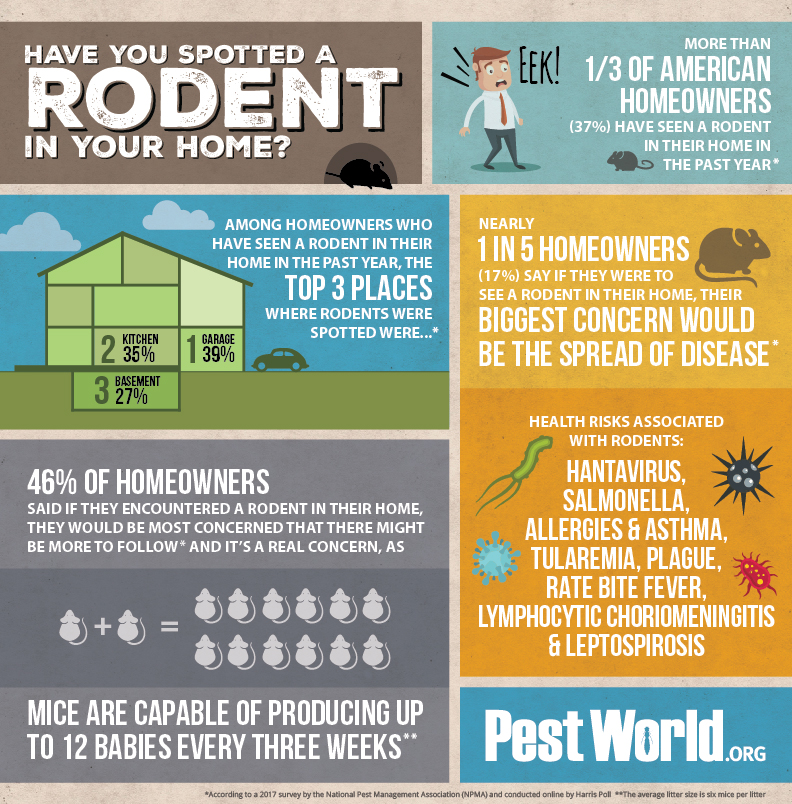Protect Your Garden From Vermins: Recommendations For Maintaining Unwanted Intruders Away
Protect Your Garden From Vermins: Recommendations For Maintaining Unwanted Intruders Away
Blog Article
Article Writer-Dunlap Merritt
Envision your yard as a sanctuary, a place of tranquility and elegance. However, the presence of outdoor insects can swiftly disrupt this picturesque image. What if there were straightforward yet reliable ways to keep these unwanted site visitors away and safeguard your yard sanctuary? By following a couple of functional pointers and carrying out all-natural strategies, you can produce an unified exterior area where your plants can prosper uninterrupted.
Natural Insect Deterrents
To maintain insects away from your garden normally, plant fragrant herbs like mint and lavender. These great smelling plants not only include appeal to your yard however also work as effective insect deterrents. Bugs like insects, flies, and also some garden-damaging bugs are driven away by the solid scents released by these herbs. Merely putting them tactically around your yard can help develop a natural barrier against undesirable bugs.
Along with mint and lavender, take into consideration planting other natural herbs like rosemary, basil, and lemongrass to additionally boost your garden's pest-proofing capacities. These herbs not just act as natural repellents however additionally have the included advantage of working in cooking or crafting self-made treatments.
Strategic Plant Positioning
Consider the layout of your garden and the kinds of plants you have to strategically put them for maximum pest-proofing efficiency.
Beginning by grouping plants with comparable resistance to pests together. By doing this, you can develop an all-natural barrier that hinders bugs from spreading throughout your garden.
Furthermore, positioning pest-repelling plants like marigolds, lavender, or mint near even more at risk plants can aid secure them. High plants, such as sunflowers or corn, can work as a shield for shorter plants versus pests like rabbits or ground-dwelling pests.
natural way to kill ants in house in mind to leave sufficient area between plants to boost air circulation and decrease the danger of illness that pests may lug.
Furthermore, think about growing strong-smelling natural herbs like rosemary or basil near at risk plants to confuse insects' detects and make it harder for them to locate their targets.
Efficient Insect Control Techniques
For combating garden insects effectively, carrying out a multi-faceted insect control strategy is essential. Begin by encouraging natural killers like birds, ladybugs, and hoping mantises to help keep insect populations in check. Introducing plants that attract these advantageous bugs can help in bug control. Additionally, exercising good garden hygiene by removing particles and weeds where bugs might hide can make your yard less congenial to undesirable site visitors.
Take into get rid of small ants in kitchen making use of physical obstacles such as row cover textiles or netting to secure vulnerable plants from parasites like caterpillars and birds. Using natural pesticides like neem oil or insecticidal soap can additionally work versus certain bugs while being much less damaging to helpful insects and the setting. It's essential to revolve your crops each period to prevent the accumulation of parasite populaces that target certain plants.
Frequently evaluate your plants for indications of insect damages so you can act without delay. By incorporating these methods and remaining watchful, you can efficiently control yard bugs and appreciate a growing, pest-free yard.
Final thought
So, there you have it - with the ideal techniques, you can maintain pesky outside parasites far from your garden and help your plants flourish.
Did you understand that growing mint has been shown to push back mosquitoes and other insects, minimizing the demand for harmful pesticides by as much as 60%?
By incorporating natural deterrents and smart growing strategies, you can create a lovely and pest-resistant yard sanctuary for you to enjoy.
